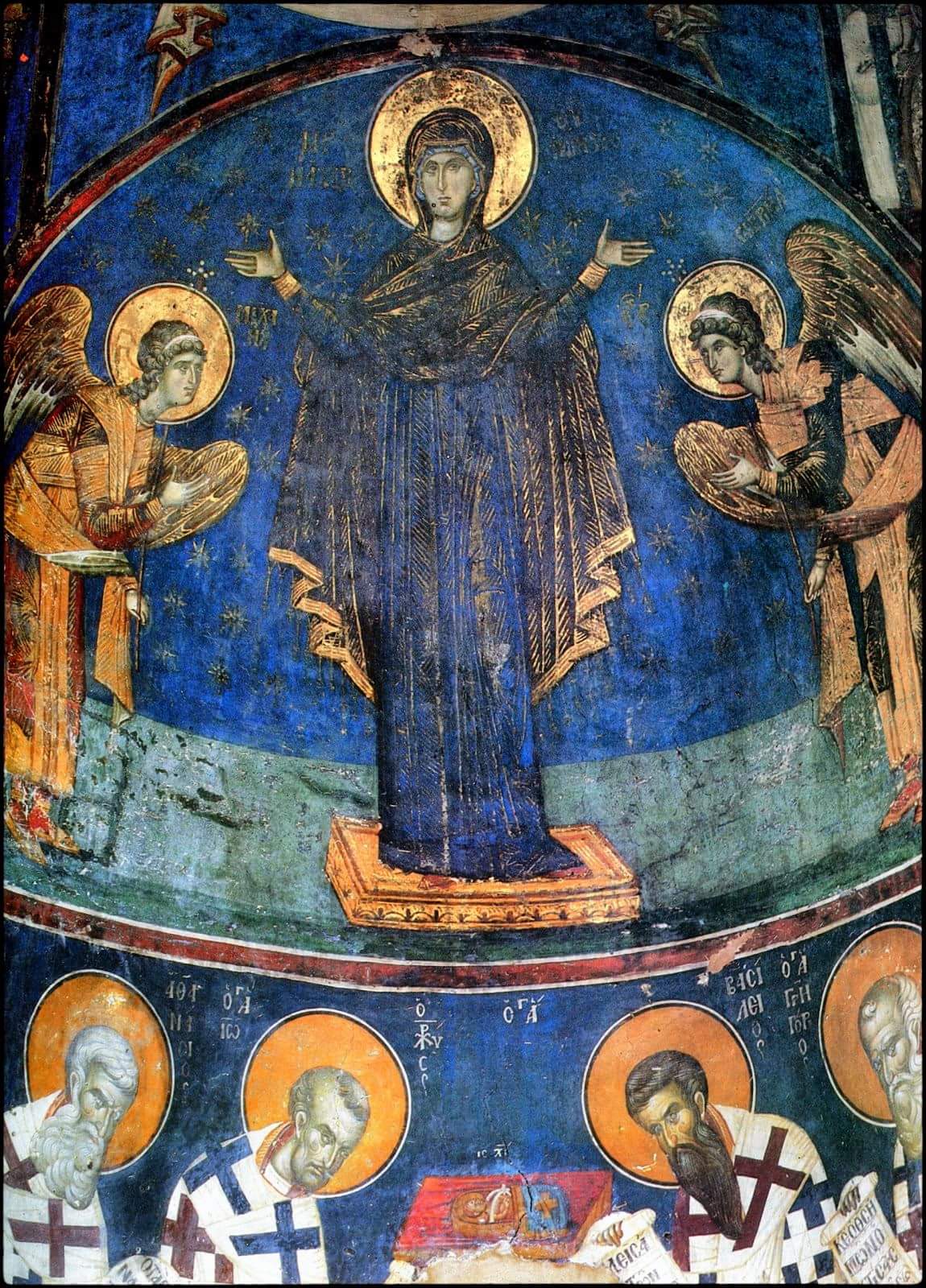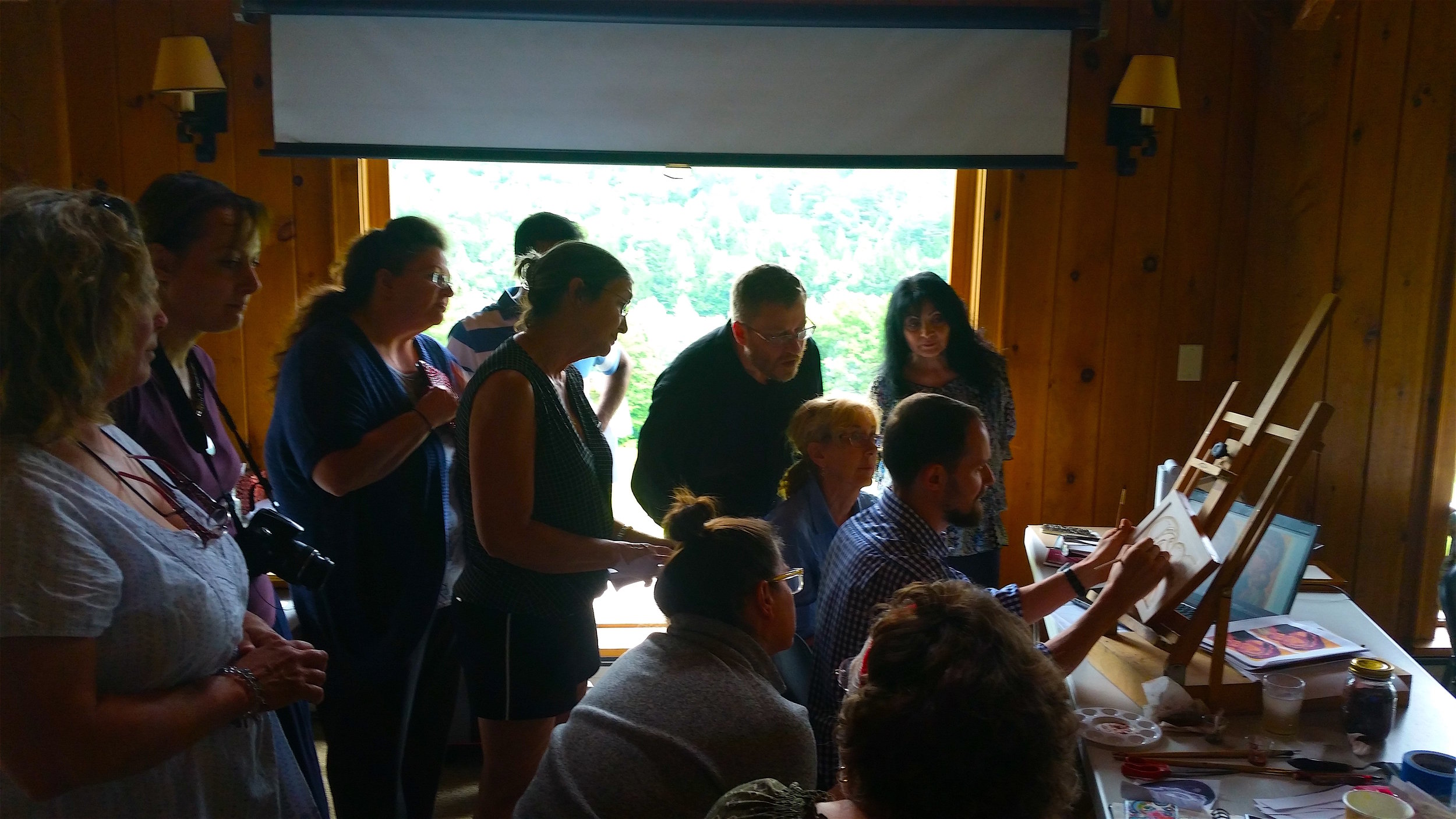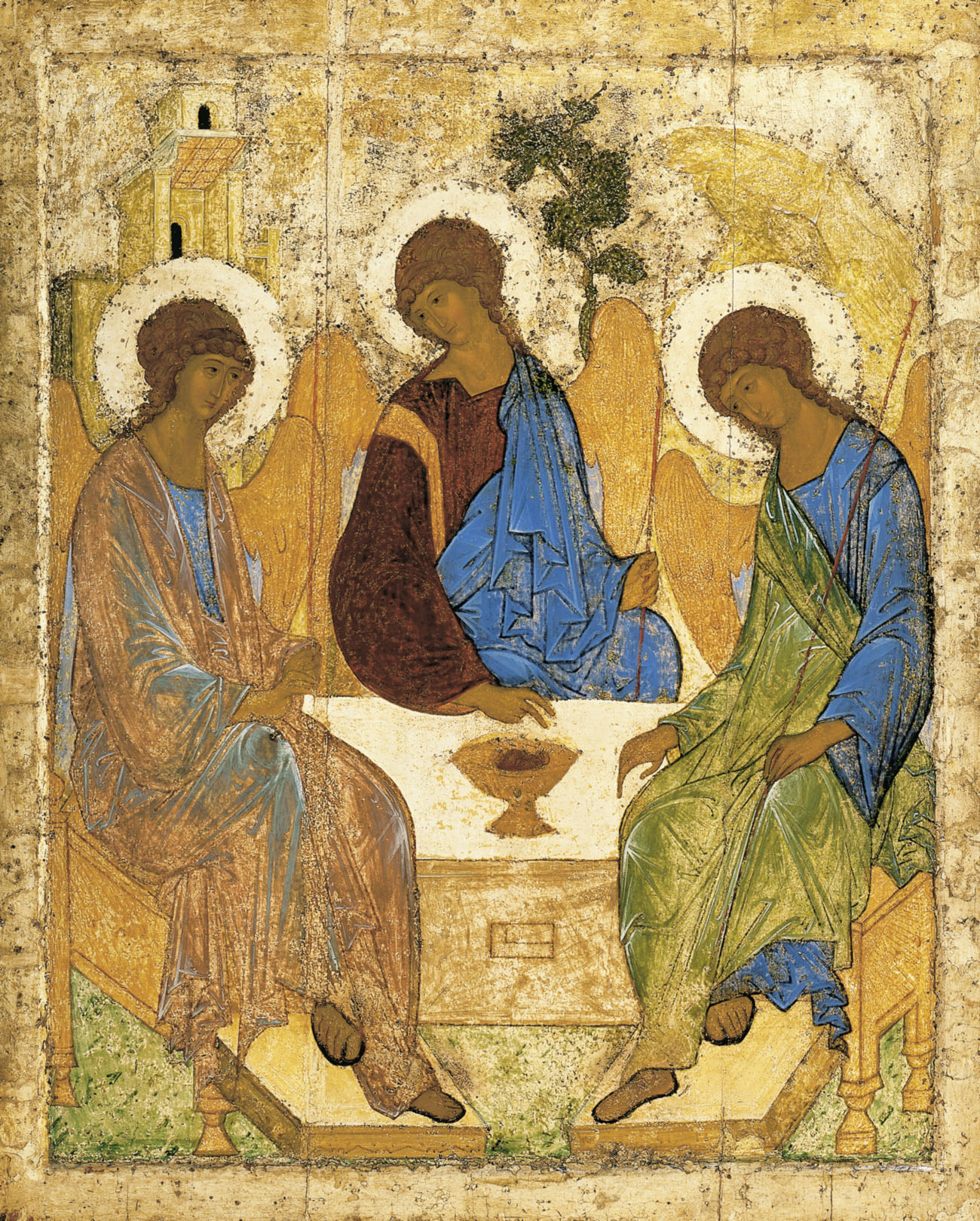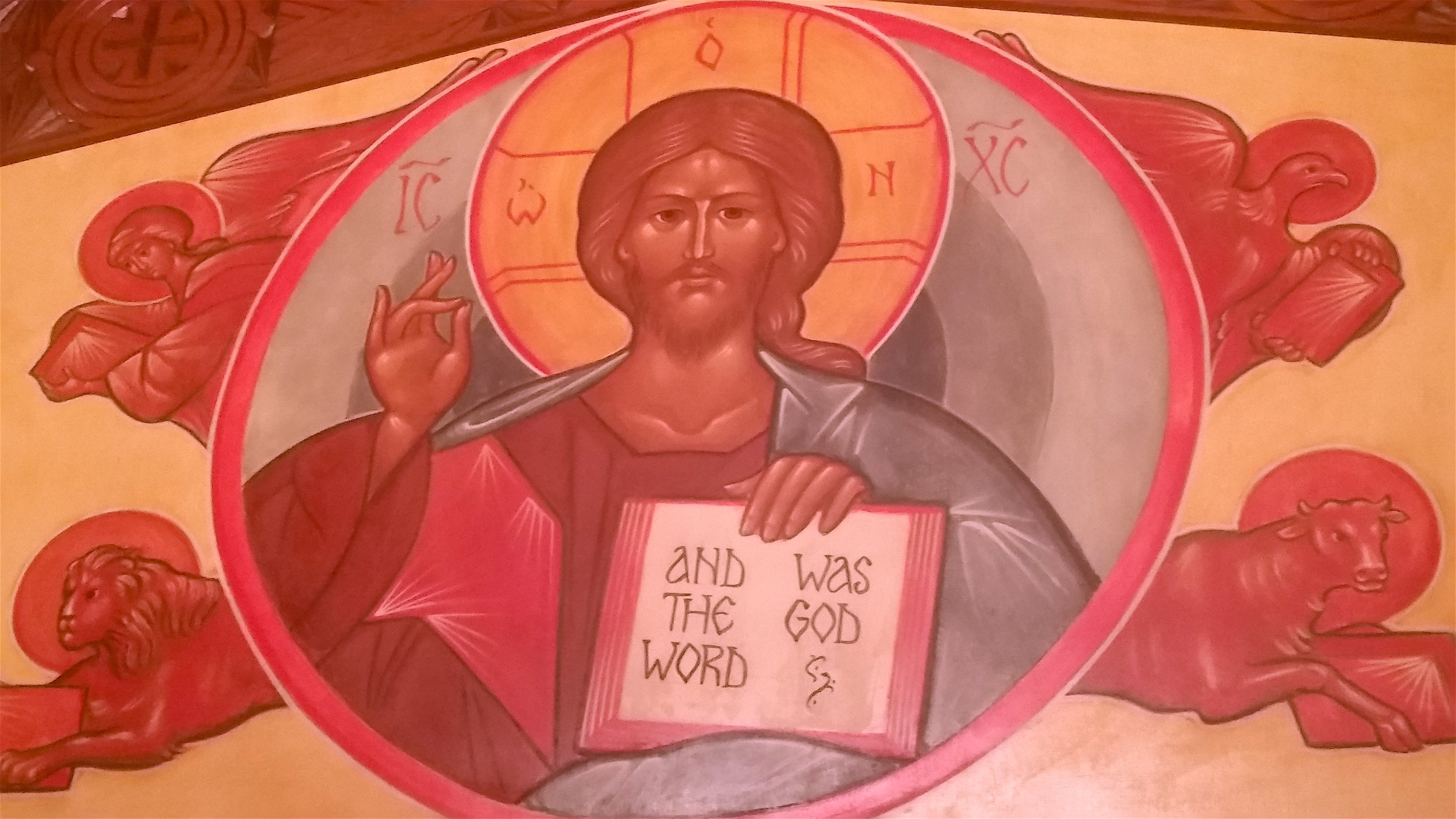 Here is an article by my friend, Keri, who is an icon painter and teacher. I am delighted that she will be teaching courses at Pontifex.University in the coming months. Keri writes:
Here is an article by my friend, Keri, who is an icon painter and teacher. I am delighted that she will be teaching courses at Pontifex.University in the coming months. Keri writes:
In the wake of common desire for a new epiphany of beauty and a renewed cultural dialogue between artists, the faithful and the Church, can we as Western Catholics embrace anew the original language of our faith gifted by Christ's incarnation through the icon?
I'm encouraged by the steps that David Clayton has made towards providing a platform to discover these answers in a balanced and clear way from the whole of our Western tradition, and I'm encouraged by the ever-broadening audience of Catholics willing to explore and reclaim the icon as a sacramental tool of prayer to aid us on our spiritual journey. Icons bear the ability to hold a special place in the liturgical and sacramental life of the Church -- a timeless contemplative beauty that endures as a spiritual compass gently reminding and pointing us home.
"He is the image [Greek: ikon] of the invisible God, the firstborn of all creation." - Col 1:15
I just finished hosting a 10-day iconography workshop in Vermont (OQ Farm: A Creative Sanctuary) for students to study with two preeminent European iconographers of our day, Anton and Ekaterina Daineko (www.ikona-skiniya.com) of Belarus. It was a blessing to be part of an international gathering of Christian artists, both Orthodox and Catholic, and to hear stories of our collective creative calling, affirming the icon as a unique means to initiate people into the eternal and divine realities of our common faith. These past few days were not only an encouragement to the students who came, but a critical witness to the greater evolution of artistic progress in the underserved arena of iconography in the U.S.

Anton Daineko demonstrates the beauty of line drawing to students at a recent master iconography workshop at OQ Farm: A Creative Sanctuary in Vermont
When we equip artists (and indeed laypeople as well) into the practice of skillfully and beautifully crafting an icon, we bring the icon into the forefront of the daily Catholic and Christian sacramental life. Since the icon is one of the earliest and most powerful forms of sharing our faith (when the Church was yet one body, East and West), this is something we ought not to lose in our contemporary Catholic culture. In recent decades it has been pushed aside for other visual representations, which have often fallen short of the original prayerful intentions of iconography.
Iconography, as a particular gift to our faith, needs an opportunity to be skillfully re-introduced to contemporary Catholic artists as well as to become more familiar and upheld in our churches. I’m convinced that the return to serving these early Christian roots through the icon will grow and deepen our Catholic faith and allow us to gain a deeper spiritual awakening, allowing us to engage in contemplative manifestations of deeper spiritual hearing and seeing and providing a perfect counterbalance to the fast-paced and over-sensory modern lives we lead. Training artists that are open to understanding the valuable place in our tradition that icons present and understanding their unique potential at this moment in time is something that we should not overlook or undervalue.
I’m convinced that with the current shift and stretch of the times into new technological frontiers (particularly in the past two decades), we need the peace and purity of the icon more than ever.
Of course, I say this as an emerging Catholic iconographer who both deeply hopes to affirm the value of learning this practicum while also participating in heralding the re-introduction and artful education of the icon -- not as simply something ancient for our Orthodox brothers and sisters, but for us as Catholics to boldly claim as our rightful inheritance -- this too, is our tradition.

Andre Rublev's Hospitality of Abraham, also known as the Trinity
"Imprint Christ onto your heart, where he already dwells. Whether you read about him in the Gospels, or behold him in an icon, may he inspire your thoughts, as you come to know him twofold through the twofold experiences of your senses. Thus you will see through your eyes what you have learned through the words you have heard. He who in this way hears and sees will fill his entire being with the praise of God." --St. Theodore the Studite
With these recent days spent in quality hours with the Dainekos, sharing their artistic gifts as modern day iconography masters, I am deeply encouraged to have had an opportunity to glean critical techniques and theology from these gifted teachers. We need more creative and high quality teaching in this field to evolve the living tradition and allow it to more readily enter into our daily lives. Without a doubt, through time spent learning this distinct spiritual artistic practice we can affirm the importance of icons and address the need for inspiring and accessible contemplative opportunities in our busy lives. Herein lies the timely value of icons -- drawing us into critical stillness and slowness in our lives so we can hear the voice of God, rendering us vulnerable to the very heart of the message of the gospel. Iconography is a sacred piece of our life in the Church.

Detail from a fresco icon by Father Andrew Tregubov, Holy Resurrection Church in Claremont, NH
"It is the task of the iconographer to open our eyes to the actual presence of the Kingdom in the world, and to remind us that though we see nothing of its splendid liturgy, we are, if we believe in Christ the Redeemer, in fact living and worshipping as "fellow citizens of the angels and saints, built upon the chief cornerstone with Christ." -Thomas Merton
A good icon should always be a work of beauty, as beauty itself bears witness to God. They are works of theology written in line, images and color, and aim to transform the viewer, pointing always towards the recovery of wholeness...of oneness with God.
I'm blessed to have had these past days steeped in the making of beauty, refining the ability to skillfully make the beautiful manifest and reinforcing the importance of time spent equipping artists of faith to excel in their creative and spiritual callings -- a pursuit graced with helping to pave the way towards reclaiming the icon. Pontifex has already begun to lay the groundwork to give artists the means to excel in the art of the icon, and I am eager to see this opportunity flourish in the days to come...

